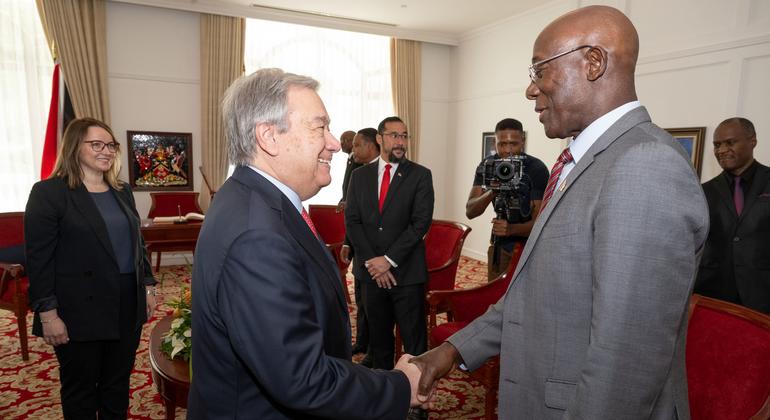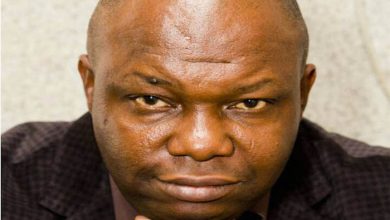At the Caribbean Summit, the UN chief called for climate action, debt relief, and urgent aid for Haiti

Haiti
The security situation in Haiti “is shocking,” UN Secretary-General António Guterres said, recalling his recent visit to the fragile country. He called for urgent action at a time when humanitarian needs are “escalating”. And although “there is still no political solution in sight”, the UN leader expressed hope and optimism.
“It is impossible to look at the crisis without looking at the long shadow of hundreds of years of colonial exploitation, colonialism, imperialism, and other blatant injustices,” he said. “We should help reduce the suffering of the Haitian people.”
Praising the significant efforts of CARICOM leaders in addressing the situation in Haiti, Mr. Guterres called for increased support from the international community.
He insisted that Long-term security requires strong democratic institutionsemphasized the need for a major improvement in the security situation.
In this way, he repeated his call to the Security Council to authorize a “strong international security force” to assist the Haitian National Police in combating and destroying corrupt gangs throughout the country.
Spirit of CARICOM
The challenges we see in Haiti need greater marriage and solidarity, he said. The Caribbean region’s cooperation in economic and social development, combating illegal drugs and arms trafficking, combating non-communicable diseases and improving gender equality is an example for him “the spirit of CARICOM“.
Climate action leadership that focuses attention on the plight of small island developing nations is another manifestation of that spirit, he said.
However, the challenges facing the Caribbean are “many”, he added. Among them is the post-COVID-19 era that has seen the collapse of the local tourism industry and export revenues.
Growing debt amid drying up liquidity and increasing climate emergencies requires action, he said.
Ancient financial system
“Today’s crisis has revealed the global financial system for what it is old fashioned, illogical, and unfair” said the UN leader. To change it, he pointed to a plan to restructure the international financial system, including the Bretton Woods system, which he put forward in preparation for the future Summit.
He urged world leaders to invest in sustainable development and climate action, take debt relief workand create new business tools like debt-for-investment swaps in climate adaptation.
He also called for a change in the business model of multilateral development banks, a transition away from fossil fuel subsidies, and a better approach to financing for middle-income countries.
1.5 ° C value is also possible
Turning to the climate crisis, he said that reducing the global temperature to 1.5 °C is still possible, but requires a A 45 percent reduction in carbon emissions by 2030. He said his proposal for a climate agreement urged major emitters to increase emissions cut and rich countries to support emerging economies in their efforts. The Secretary-General has announced an Acceleration Plan aimed at this.
“I urge governments to hit fast forward on their net-zero deadline so that developed countries decide to reach net-zero as close as possible to 2040 and emerging economies as close as possible to 2050,” he said.
Calling on governments to increase their network commitments, he also called on developed countries to “finally made good on their financial promises to developing countries”, including by doubling renewables and reforming the Green Climate Fund.”







